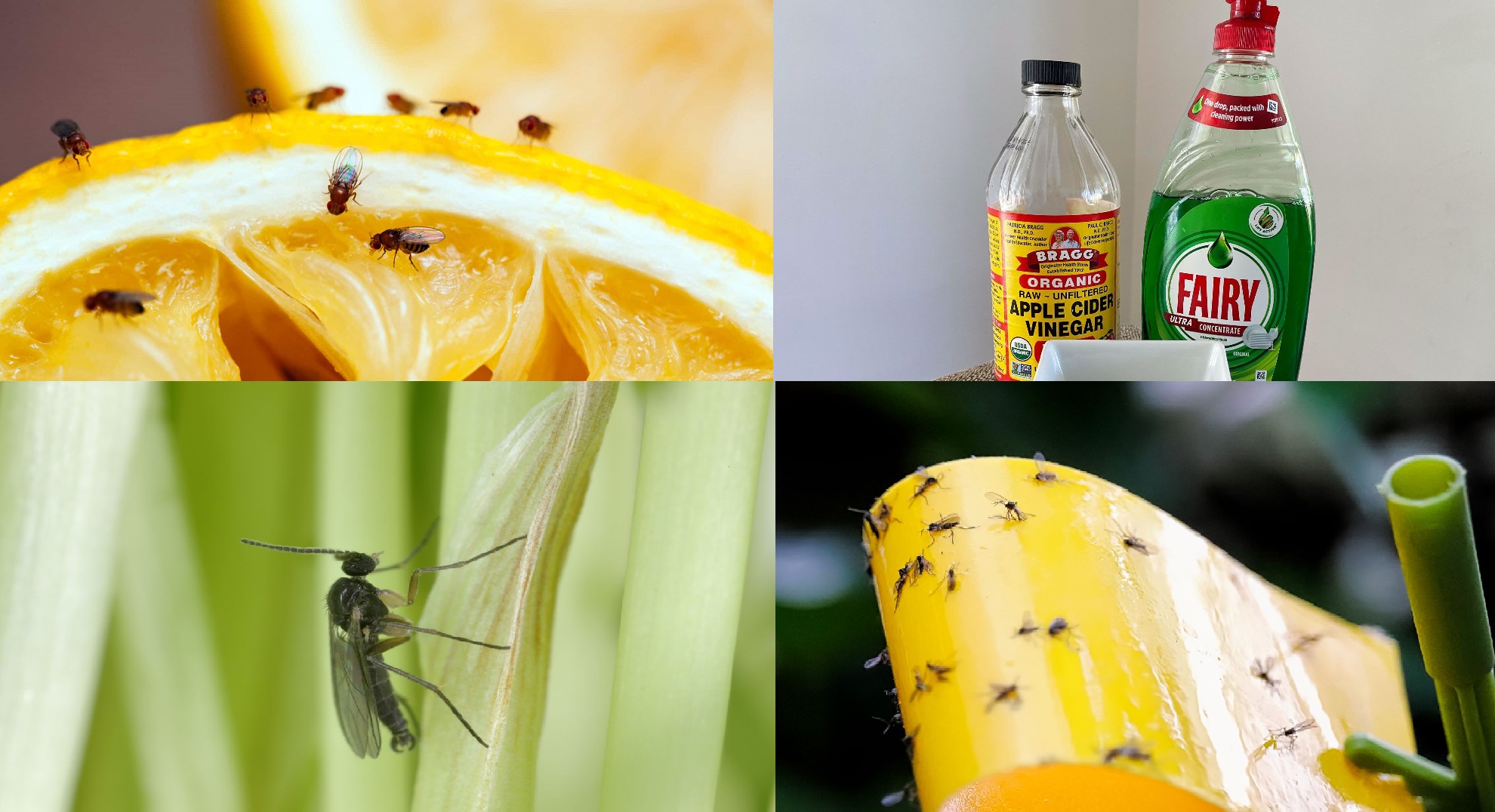
Gnats, those tiny flying nuisances, can turn a peaceful home into a frustrating battleground. Whether they’re swarming around your plants or buzzing annoyingly in your kitchen, these pests can be persistent. Here’s a detailed guide on how to effectively eliminate gnats and prevent their return.
What is the Fastest Way to Get Rid of Gnats?
The quickest way to deal with gnats involves a combination of traps and elimination of their breeding grounds. First, identify and eliminate any sources of standing water, overripe fruit, or damp soil in houseplants. Next, set up homemade traps using apple cider vinegar or a store-bought insect spray. This one-two punch targets the adult gnats while also addressing their breeding habitats.
What Smell Do Gnats Hate?
Gnats are repelled by certain scents, particularly essential oils like citronella, peppermint, and eucalyptus. Using these oils in a diffuser or mixing them with water to create a spray can help keep gnats at bay. Additionally, vinegar can be effective; while it attracts them for trapping, the strong smell also deters them in some situations.
Why Am I Getting So Many Gnats in My House?
Gnats thrive in environments where there’s moisture and organic matter. Common causes of gnat infestations include:
- Overwatered plants: Fungus gnats are often found in potted plants with too much moisture.
- Rotting food: Overripe fruits or vegetables left out can attract fruit flies, a type of gnat.
- Trash bins: Open or overflowing garbage cans can provide a breeding ground for various types of gnats.
How to Get Rid of Gnats with Vinegar?
Apple cider vinegar is one of the most effective and popular methods for eliminating gnats. Here’s how to use it:
- Prepare the trap: Pour a small amount of apple cider vinegar into a bowl and cover it with plastic wrap. Secure the wrap with a rubber band and poke small holes in it. The scent will attract gnats, and they’ll become trapped inside.
- Place the traps: Set these traps in areas where you’ve noticed gnat activity, such as kitchens or near houseplants.
What is the Best Gnat Killer?
The best gnat killers include:
- Insecticidal sprays: Look for products containing pyrethrins or pyrethroids, which are effective at killing adult gnats on contact.
- Homemade traps: Beyond vinegar, a mixture of dish soap and water can suffocate gnats that land on the surface.
What Can I Use to Repel Gnats?
To repel gnats effectively, consider the following options:
- Essential oils: As mentioned earlier, scents like peppermint, eucalyptus, and citronella can deter gnats.
- Herbs: Growing plants like basil, mint, or lavender can help repel gnats naturally.
- Insect repellents: Look for repellents designed for use around the home, ideally containing natural ingredients.
What Spray Kills Gnats Immediately?
For immediate results, consider using:
- Household insect sprays: Products labeled for flying insects often contain ingredients that can kill gnats on contact.
- DIY solutions: A mixture of water and dish soap can be sprayed directly on gnats to suffocate them.
What Annoys Gnats?
Gnats are particularly annoyed by strong smells, especially from essential oils. Additionally, bright lights can attract them, but they also find the presence of other insects (like wasps) intimidating. Keeping your environment well-lit but using traps in shaded areas can help keep gnats at bay.
What Are Gnats Attracted To?
Gnats are primarily attracted to:
- Moisture: This includes damp soil in potted plants and any sources of standing water.
- Sweet scents: Overripe fruits, sugary drinks, and fermented substances draw fruit flies and other gnat varieties.
- Food waste: Open trash bins or compost piles can be magnets for gnats.
Do Gnats Bite Humans?
Most gnats do not bite humans, but some species, such as biting midges (also known as no-see-ums) and certain types of black flies, can. These gnats have mouthparts designed for piercing skin and feeding on blood. Bites from these gnats can cause itching, redness, and irritation. However, the common fruit fly and fungus gnat do not bite; they primarily feed on decaying organic matter and are more of a nuisance than a threat.
How Do I Stop Attracting Gnats?
To prevent attracting gnats to your home, consider the following strategies:
- Eliminate standing water: Regularly check for any sources of standing water, such as clogged sinks, overwatered plants, or pet water dishes. Fix leaks and change water frequently.
- Manage food waste: Store fruits and vegetables in the refrigerator and ensure that trash bins are tightly sealed and emptied regularly.
- Maintain cleanliness: Keep your kitchen and eating areas clean. Wipe down surfaces to remove food residues, and clean up spills promptly.
- Control humidity: Use dehumidifiers in damp areas of your home, such as basements, to reduce moisture levels.
- Inspect houseplants: Ensure that houseplants are not overwatered, and check for signs of fungus gnats. Allow the soil to dry out between waterings if necessary.
Conclusion
While gnats can be a frustrating household pest, understanding their habits and preferences is key to eliminating them effectively. By using traps, addressing breeding grounds, and employing natural repellents, you can take back your space from these pesky invaders. Stay vigilant and proactive to ensure your home remains gnat-free!

